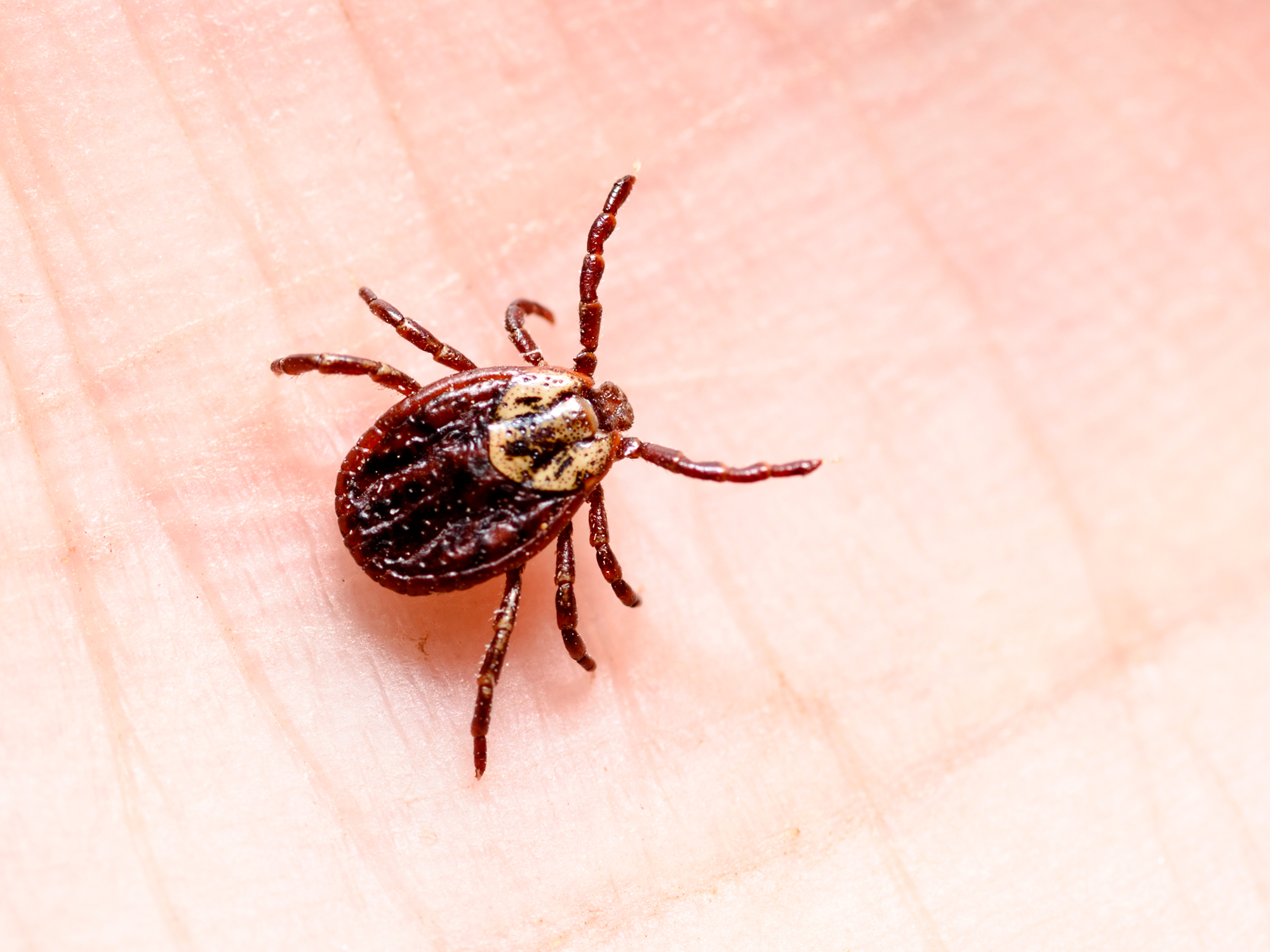Get Easy Health Digest™ in your inbox and don’t miss a thing when you subscribe today. Plus, get the free bonus report, Mother Nature’s Tips, Tricks and Remedies for Cholesterol, Blood Pressure & Blood Sugar as my way of saying welcome to the community!
Scientists warn ‘allergy’ danger from ticks is greater than expected

If you’ve ever been bitten by a tick, you know there’s probably one word that comes to your mind…
Gross!
After all, you look down and there’s this nasty little bug burrowed into your skin sucking on you like a tiny little vampire.
And, not only do you have to find a way to extract it without its horrible fanged head detaching under your skin and infecting your body, you also have to worry about the diseases it can leave behind, like Lyme disease, Rocky Mountain Spotted Fever, Colorado Tick Fever, Ehrlichia and Powassan disease.
And, if those weren’t enough, you may have heard that getting bit by one of those horrible little ticks can make you allergic to red meat.
Yep, a simple tick bite could take steak off of your menu forever.
That’s because getting bitten by the Lonestar or Deer tick has been linked to the development of an alpha-gal allergy causing you to break out in hives, get a runny nose, headache, stomach cramps or end up with nausea, vomiting and diarrhea after eating beef, pork, lamb or goat.
The only good news was that doctors said that the allergy was uncommon because in order for a tick to cause the reaction in humans, they had to have recently fed on a deer, dog or other small mammal that had alpha-gal.
But, guess what…
A new study has found that the hypothesis was wrong and the tick danger is even greater than ever.
Risk of each tick bite higher than anticipated
Alpha-gal is a sugar found in most mammal blood, except humans. When you develop an allergic response to it, it can lead to a red meat allergy called alpha-gal syndrome (AGS) — a reaction scientists at the UNC School of Medicine set out to study.
The researchers stripped white blood cells of their Immunoglobulin E (IgE), antibodies produced by the immune system during an allergic reaction. They then primed the cells with plasma from individuals with AGS and without AGS. Then, the researchers added tick salivary gland extract from four species of ticks — Lone Star, Deer, Gulf Coast and American Dog. Some of the ticks had recently fed on blood containing alpha-gal, and some hadn’t.
As researchers expected, saliva from the Lone Star and Deer ticks that recently fed on blood caused a reaction. However, saliva from those same types of tick that had not recently fed on blood also caused a reaction.
Because samples of both blood-fed and non-blood-fed tick saliva in these experiments exhibited a range of reactivity, Dr. Scott Commins, associate professor of medicine and pediatrics at UNC School of Medicine said, “This new data suggests that ticks can induce this immune response without requiring the mammal blood meal, which likely means the risk of each bite potentially leading to the allergy is higher than we anticipated.”
Take yourself off the tick’s menu
Since there’s no treatment for AGS, other than avoiding foods and products that cause a reaction, it’s vital that you take precautions to prevent tick bites.
The best ways to do this are:
- Avoid wooded areas with tall grasses since these are the ticks’ playground.
- Use natural tick repellent to stop ticks from taking a bite out of you. Here’s how to make your own.
- Go with light colored clothes so you can easily spot ticks before they get to your skin.
- Choose long sleeves and pants to cover as much of your skin as possible.
- Check yourself frequently so that ticks don’t have time to latch on.
- As soon as you get inside, take a shower and toss your clothes into the dryer.
It’s also important to remember to keep your immune system strong so that you can fight off anything a tick throws at you if you are bitten. Follow this advice to keep you immune system running like a 20 year old’s no matter what your age.
Sources:
- The little bug causing a big scary meat allergy — Easy Health Options®
- Likelihood of tick bite to cause red meat allergy could be higher than previously thought — University of North Carolina Health Care
- Urgent: The newest deadly tick danger — Easy Health Options®













